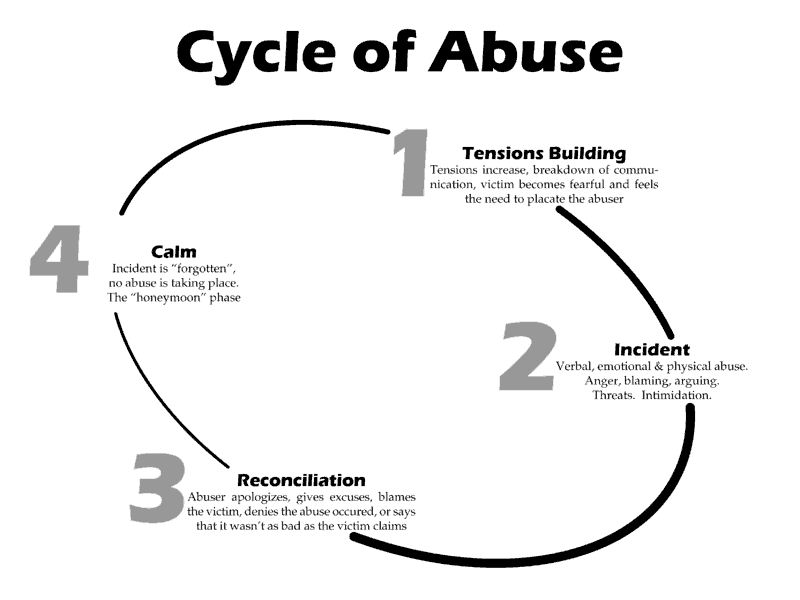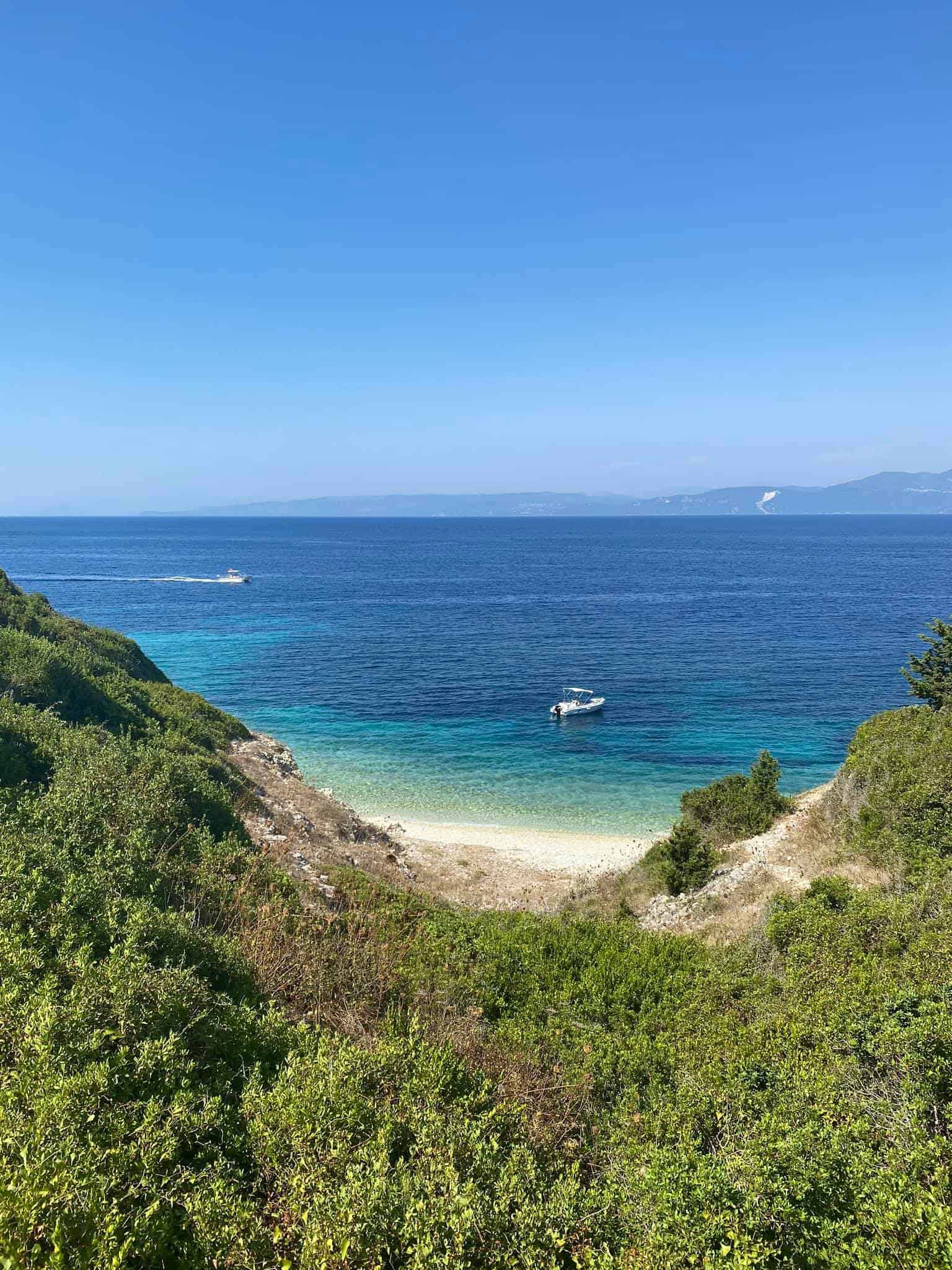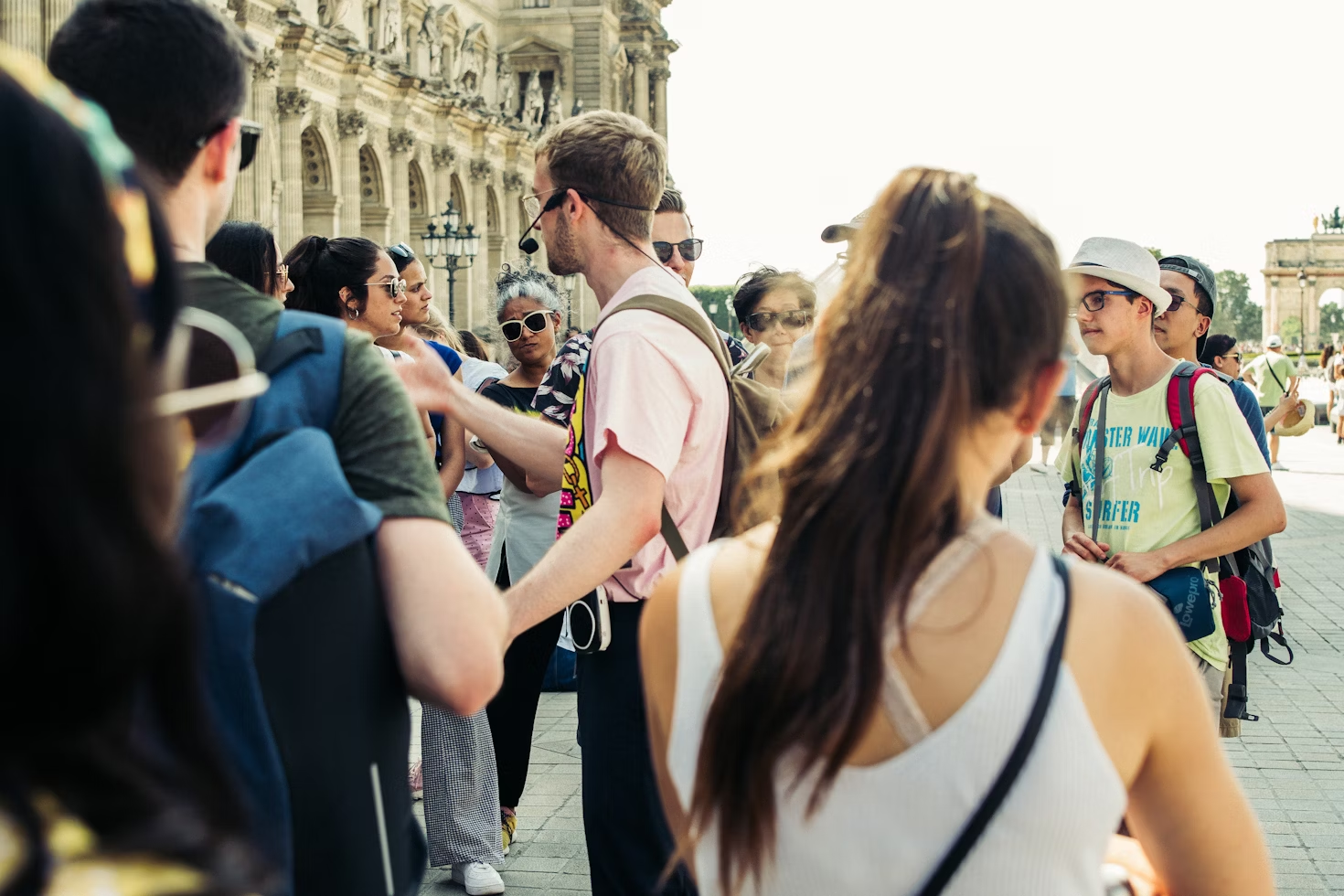Domestic violence in Greece may be a different picture from what you are used to in your home country. No one should ever have to tolerate violence and abuse in their intimate relationships but unfortunately, this is more common than many people realise.
About This Guide
It is hard to find information on where to go and what to do when you are experiencing domestic violence in Greece. I decided to compile this guide to help others that may be suffering from this – whether you are Greek or an expat.
Please note that some sections may be triggering. Consider viewing in incognito mode or deleting your browser history after reading if you live with your abuser.
This guide is updated periodically and was last updated in November 2021. We are in the process of translating this into Greek and Italian and converting it into a PDF format.
Background
I moved to Greece in summer 2017 to live with my partner – a Greek Policeman. The relationship started all rainbows and sunflowers as most abusive relationships do.
I had been in a relationship just under a year when I felt that things were not the way they should be. It took me another 18 months before I started to hear terminology like “abuse”, “narcissist”, and to realise that I was in an abusive relationship.
I had been googling things like “why does my partner always criticise me?” It felt like I could never do anything right.
I was constantly stepping on eggshells so that I didn’t have to deal with constant scrutiny and nasty comments about my personality, character, the way I took care of the apartment, etc. As I started reading more and more about abuse, I felt like I was reading about my partner.
I quickly realised that this was a common pattern of behaviour. I wished that I had known about abuse, narcissism, and what to look out for in the first instance.
Unfortunately for me, the abuse continued long after ending the relationship and I had to temporarily leave Greece for my safety. Since my ex-partner was a cop, I think that that made everything worse, particularly when I went to the police for help.
Is Your Relationship Abusive?

A lot of people hear the word “abuse” and their minds automatically conjure up the image of a man that is physically violent towards his partner. Abuse does not have to be physical.
It can also be emotional, psychological, verbal, financial, or sexual. Arguably some of these more psychological forms of abuse can be just as, if not more damaging than physical abuse.
Today, it can feel as though words like “abusive” and “narcissist” are thrown around a little too much. People refer to their partners as being “a bit of a narcissist” when the reality is that they were just a bit of a douche.
There is a significant difference between a partner who is unpleasant and a partner who is abusive. It is two years since I ended my abusive relationship now and it is the trauma and triggers from his mental abuse that I have found it hardest to overcome.
Signs of Emotional Abuse
Some of the signs of emotional and psychological abuse are detailed below. This list is by no means exhaustive. However, it should give you an indication as to whether your own relationship is abusive or not.
- Criticisms – Does your partner pick fault with everything you do to the point where you feel that you can never do anything right?
- Put-Downs – Does your partner put you down and knock your confidence?
- Silent Treatment – Does your partner use the silent treatment to punish you if he/she does not get their own way?
- Gaslighting – Does your partner twist reality to say that things did not happen or that you are remembering the situation wrong?
- Control – Does your partner tell you what to wear or what to eat? Do they consider your refusal as disrespectful?
- Threats – Does your partner threaten to kick you out after a minor argument? Do they threaten that they will self-harm if you leave?
- Stone-walling – Does your partner refuse to talk about certain topics? Does he dismiss or ignore you when you raise behaviours that hurt you?
- Mood Swings – Do you find that you are constantly stepping on eggshells so as not to anger your partner? Do you find that you never know which version of him/her is going to come home from work?
- Withholding Sex and Affection – Does your partner withhold affection and imply that you need to jump through hoops to “earn” their love?
- Verbal Abuse – Does your partner call you names or tell you that you’re dumb/stupid/etc?
- Isolation – Does your partner isolate you from your friends and family or try to turn you against them?
Physical and Sexual Abuse
No form of abuse is acceptable and no form is worse than another. Physical and sexual abuse is often much more clear-cut and easy to identify than psychological abuse.
Non-consensual sexual activity is abusive. Your partner should never threaten you with physical violence or act upon those threats.
Domestic Violence in Greece
Domestic violence is a problem all over the world – Greece included. Unfortunately, the global pandemic has seen domestic violence and femicide reports in Greece rise to unprecedented levels.
In 2021, there have been 12 femicides in Greece in less than a year. The world started paying attention to domestic violence as an issue in Greece when British woman Caroline Crouch was murdered by her partner in May 2021.
However, that is far from an isolated incident and there are countless other women in Greece abused and killed by their husbands that do not receive the same level of media publicity. There have also been thousands of reports of domestic violence in Greece since the pandemic started.
The problem? Such reports are often not taken seriously until things turn fatal. Police and Greek authorities are not trained on domestic violence and abuse and they lack emotional intelligence and empathy.
The Statistics
Statistics from the Domestic Violence Department of the Hellenic Police (ELAS) show that domestic violence in Greece rose by 34.5% in the height of the country’s economic crisis.
Data from the women’s charity WINHellas also indicates that:
- 1 in 4 women in Greece will experience domestic violence at some point in their lives
- 50% of women murdered in Greece are murdered by their romantic partners
- 25% of women in Greece have experienced physical or sexual violence since age 15
Domestic violence has no gender. Men can indeed be victims too. However, the majority of those abused in Greece are women.
Greece is a patriarchal society. A 2019 study conducted by EIGE (European Institute for Gender Equality) found that Greece is the worst country in Europe for gender equality.
Greek Culture and Domestic Abuse
Greek traditions and culture don’t help the situation of domestic violence in Greece. The topic is seldom discussed and it is all very hush-hush.
Domestic violence is considered a private matter between families and romantic partners. It is often pushed under the rug.
For instance, a family knows that so and so hits his wife, but it is better than being alone or getting a divorce. Speaking openly about such matters or “airing your dirty laundry” so to speak, borders on being taboo.
This needs to change. Fortunately, in 2021, progress is being made. Slowly but surely. There is no shame in speaking out.
Domestic Violence Charities in Greece
If you are trapped in an abusive relationship in Greece, there are plenty of domestic violence charities and shelters available to help you. However, arguably some are better than others.
If you need someone to talk to and give advice, or you need help in making an escape, you will be able to find aid in Greek and English. Many Domestic Violence charities in Greece are able to provide a free Lawyer, if necessary.
Your Lawyer can help you win your case should you need to file a restraining order, or if the matter goes to court. However, dealing with court battles in a country overwhelmed with bureaucracy issues is not simple. More on that below.
Dial 100 in an Emergency
If it is an emergency and you believe that your life may be in danger, don’t hesitate to call 100. This is the emergency police number. Someone will come and remove the individual.
SOS15900
SOS15900 is Greece’s national helpline for abused women. You can also contact them via email if preferred at [email protected].
They offer advice in Greek, English, and a number of other languages. You should consider making SOS15900 your first point of call when considering what to do in your situation, particularly if you are thinking about filing a police report.
SOS15900 offers free legal and psychological aid. The email contact to request either is [email protected], and the telephone contact is 00302105783265.
Unfortunately, they were very unresponsive to emails. Call if you can.
This website is viewable in both English and Greek. You will find a list of local consulting centres detailed on their website, in addition to the contact information for each specific centre.
Diotima
Diotima is a non-profit organisation that aids with women’s issues. They are able to provide support and legal advice to abused women.
You can reach them at [email protected]. Alternatively, call via the telephone number +302103244380.
WIN Hellas
Win Hellas is a small domestic violence charity managed by Mada Papadakos. The Win Hellas website is only available in Greek.
However, you can find help and resources on their social media. The email address for WIN Hellas is [email protected], and their contact telephone number is 2108996636 (open 9 am until 4 pm).
Mada also has a wonderful Ted Talk discussing her experience with domestic abuse. They are not very responsive so to reiterate, call SOS15900 first and foremost.
Kamia Anohi (Καμιά Ανοχή)
Kamia Anohi is a women’s organisation that is worth being aware of. They fight for women’s rights and in the battle against femicide.
You can find their page on Facebook. They shared my story and in doing so, helped me connect with a Lawyer and several Greek media outlets.
Καταγραφή έμφυλων περιστατικών – Sexist incident recordings GR
Καταγραφή έμφυλων περιστατικών is a Facebook group for women to discuss sexist incidents in Greece. Most participants are Greek and discuss topics in Greek.
However, they also speak a good level of English and are very helpful. If you want to gain someone’s opinion on your situation or the law in Greece, or you want to speak to others who have had similar experiences, this is a good resource.
Sadly, you will see a lot of discussions of things that have happened where women have been too scared to involve the police. This only highlights the severity of the issue of domestic violence in Greece.
Domestic Violence Shelters in Greece

Domestic violence shelters do exist in Greece, although they can be mostly found in larger cities like Athens and Thessaloniki. If you are in need of shelter and temporary refuge, call SOS15900 and they can point you in the right direction.
The “Shelter for Women Victims of Violence & their children” exists in Athens and is open 24/7. For obvious safety reasons, their address and contact information is kept private.
You can find more information about them here. SOS15900 can make you a referral.
My Experience with Domestic Violence in Greece
I met my partner in 2017 and we were together for two and a half years during the time I lived in Athens. It wasn’t until we had been together for almost a year that the situation started to go awry.
He was lovely in the beginning. This is a common pattern with a lot of abusers.
The Start of Emotional Abuse
I moved into his apartment and it started with little things that I didn’t realise were abuse at the time. I have always been self-conscious about aspects of my appearance and he would criticise me for them.
If I called him out? He said I was psychologically unwell and it was my mental wellbeing that was the problem, not his comments.
Yes, I had insecurities with my appearance like many women. But in a healthy relationship, your partner does not weaponise them against you.
“Why do you bother wearing makeup? I can still see your acne scars. Stop pretending to be someone you’re not”
“Take a look at Greek women and how much more effort they put into their appearance than you do”
“Stop wearing that lipstick. It makes you look worse, not better.”
“Are you really wearing that? I don’t want you to look like a wh*re to the others”.
These things should have been a major red flag right away. However, it was so out of character at that point in time that I couldn’t understand why my (apparently) sweet, lovely boyfriend was being so nasty to me.
My partner told me that he was trying to help me. He even said that he was embarrassed to introduce me to people because of the way I looked.
He became so obsessed with my appearance and controlling over what I wore and what I ate. I found myself sinking into depression and dressing like a frumpy old woman because he never made me feel attractive and I lost all my confidence.
Escalation of Abuse
I would try and tell my partner how his comments made me feel and he would become furiously angry. He never wanted to listen. He began criticising practically everything I did until it felt as though I couldn’t do anything right and I was constantly stepping on eggshells.
If I left a window open and a mosquito got in, I was stupid. If I had ordered food, and the delivery was late, obviously I had done something wrong.
He would stand over me, watching me cook food or wash dishes and picking fault with everything. It became hell.
After Work Patrols
I worked from home, and I was also the main breadwinner between us. He would come home from work and start checking if the items in the fridge had expired, if I had made the bed, and if there were any crumbs on the floor.
I began to feel incredibly anxious when he was coming home from work. So, I would sacrifice my own work to run around his apartment making sure everything was perfect.
I’d check that the bed was made, that throw blankets had been folded in perfect symmetry, etc. Once he complained that the throw blanket had an indent where someone had been sitting and was not perfectly smooth.
He then before suggested I took a photo of the smooth blanket. That way, I would remember how it should look.
I would be constantly looking at the clock while working to see when he would be coming home. I would sweep and mop the floors obsessively every day and would often get on my hands and knees with the portable vacuum cleaner for the car to make sure there wasn’t a single spec of dust for him to complain about.
Looking back, this all sounds insane. But I could not bear to see him lose his temple so I ran around like a maniac to have a “quiet life” without confrontation.
He never appreciated anything and would lose it if he found so much as a strand of hair on the bathroom floor. I had nightmares for long after the relationship that I was still in his apartment trying to clean before he got home.
Gaslighting and Lack of Emotional Intelligence
If we had a disagreement. For instance, because I asked him to stop criticising me, or I expressed any dissatisfaction at the things that happened between us, it was always my fault.
It was never a mutual argument like couples have. It was me trying to call him out on his behaviour and set boundaries.
I would be upset about something and try and raise it with my partner. Then, he would block my number, or leave the room, and basically not give me an opportunity to discuss it.
He would come back again after time had passed and expect me to just shut up and forget about it. If I raised that we had not even discussed the topic properly, he would yell at me to stop repeating myself.
Sometimes, he would fly into a violent, angry rage banging and throwing things. However, things were never resolved.
He would give me the silent treatment for days, or threaten to leave me or kick me out because he was just not mature enough to have an adult discussion. He started making fun of me to his friends and helpfully suggested I see a Psychiatrist because I was obviously “crazy”.
The Cycle
Abusive partners are not abusive constantly. They flit between nice and nasty. People that ask why people stay in these situations are asking the wrong questions.
My partner could do something unspeakably horrible, and then he would come home with some cakes from the local bakery, or take me out for dinner. He’d be sweet for a couple of weeks and I’d give him another chance.
Then he would do something awful again and I’d berate myself for giving him another chance. I tried to leave so many times and always came back because I loved him and I wanted to believe he could change.
Recognising the Abuse
Emotional abuse is every bit as unbearable as physical abuse. I cried almost every day in my relationship and I often felt trapped and in despair about what to do.
If I look back, it’s easy to tell myself that I should have left. But I was in a strange place mentally and it wasn’t easy.
It has taken me a long time to get over the anger I had towards myself for putting up with everything. Sometimes I booked hotels and planned my escape then felt that I couldn’t leave.
When someone puts you down constantly and makes you feel less-than, you lose all of your self-confidence. You start to believe their comments that you are stupid, ugly, etc, and that no one else will love you. So with that being said, it makes sense that you don’t feel strong enough to leave.
Physical Abuse
When my partner eventually became physical, something clicked in my mind and I realised that I had to get out. We had an argument and he punched me in the face so hard that I had to check that my teeth had not been dislodged.
I told myself that I should leave but I was in absolute shock and we had booked a trip to Karpenisi together for a few days later. I decided to go on the trip while I figured out what to do.
In Karpenisi, he stormed angrily out of a restaurant because I couldn’t decide what to eat fast enough. He slammed the restaurant door while muttering and swearing in Greek, leaving me behind.
The restaurant staff just stared at me. Not one person helped or intervened.
I chased him to the car, and he bashed my head on the dashboard, pulled my hair, and wrestled with me to try and throw me out of the car on a country road in the middle of nowhere at night. That was the final straw for me.
I recorded the ordeal on my phone just in case something happened to me and someone found me later which is incredibly dark and disturbing to admit. We got back to the hotel and I didn’t call the police.
He was my ride back to Athens and I didn’t know what to do so I stayed with him while yelled at me that it was my fault he got angry and his “friends would have reacted the same. I had a migraine from all the trauma and he hid my painkillers.
Abuse After Leaving
We returned to Athens together and I could not leave immediately. I had to bide my time, send my belongings back to the UK, and book my flights.
I did not tell him I was leaving him and I recommend the same as abusive people fly into a rage when they think they are losing control. Instead, I booked a flight to Ioannina and told him I wanted to explore Northern Greece.
When I left the country, I ended it by text. On reflection, I began to feel incredibly angry about everything he did to me and sent ranting emails and messages demanding an apology for his violence.
He never apologised for punching me in the face nor trying to throw me out of a moving car and threatening to kill me. He twisted the blame on me for making him lose his temper.
Do not expect closure. These people are incapable of remorse.
He blackmailed me for money and threatened to send explicit photos of me to his contacts. For a period, he began harassing my family in the UK and we had to involve the British police.
Involving the Hellenic Police
This is part of an ongoing investigation so I cannot disclose too much information. However, after filing a report of this person’s abuse and assault with the Hellenic police, he was immediately notified by his superiors.
He called me in a rage immediately demanding I retract my report “or else”. Fortunately, I was outside of Greece. The Hellenic Police could have potentially put me in danger.
I had taken a solo trip to Uzbekistan and left a hard drive with all my photos on it at his place. He used this as a bargaining chip to get me to retract my report.
He said this would be destroyed if I didn’t retract my report. I forwarded this to the Hellenic police who continued to ignore me and did not even issue me a case number. Unfortunately, I never received my photos and can only assume they were destroyed.
I reported him to the British police for harassing my family in the UK and told him he was under investigation to scare him into stopping. Instead, he reported me to the British police for defamation and harassment.
Best of all, he lied and said I was a crazy woman that was not even his girlfriend. When uniformed officers arrived at my door, I had to go about proving I had been with this man for years. They found the entire thing really bizarre and simply told him not to contact me again.
I decided to return to Greece and not be intimidated out of a country I loved by an abusive man. I moved to the island of Skopelos rather than returning to Athens, to be away from him.
The Police Raid
On the 28th February 2021, five armed police from his department of Hellenic Cybercrime broke into my villa through an ajar balcony door based on a claim of “defamation” from him. I had neither spoken to nor seen him in almost two years at this point.
You cannot abuse and beat women and then scream “defamation” when they talk about it. Unfortunately, this seems to be common among rape and abuse victims in Greece.
The police seized my electronic devices, refused to let me speak to a Lawyer, and shoved me around the house half-naked. This is how victims of domestic violence in Greece are treated.
I sought help from various charities and departments of the police to no avail. Ultimately, I decided to leave the country for my own safety while my Lawyer dealt with suing my abuser.
How had he found out I was in Skopelos? Either by stalking my social media or his colleagues had told him when I updated my address following my report.
I had substantial evidence of his abuse – recordings, screenshots, saved message threads, photographs. The police were sent them and yet they scrambled to protect their colleague and friend.
The Law on Domestic Violence in Greece
Domestic Violence is an offense under Greek law. There is a dedicated department within the Hellenic Police that deals with domestic violence, and those found guilty may be required to serve time in jail.
Physical, Psychological, Emotional, Sexual, and Financial abuse is punishable by law under Law 3500/2006. With that said, the reality after speaking to several Domestic Abuse survivors seems to be that cases in Greece are not always handled the way they should be.
That includes mine. The enforcement of laws and handling of legal matters in Greece leaves a lot to be desired.
That isn’t restricted to domestic violence in Greece, but with everything. Sure, the legislature may exist. But in practice, it may not be implemented correctly.
Leaving Your Abusive Relationship
Leaving an abusive relationship is a commendable feat in itself. You have recognised that you are not being treated as you should be. You deserve better.
Do not berate yourself for not leaving sooner. These people are master manipulators that play mind games to make you doubt your sanity.
It is said that the average domestic abuse survivor tries to leave seven times before finally leaving. You are far from alone in this.
Do not say you are leaving
Leaving an abusive relationship is often the most dangerous time. Do not tell your abuser that you are leaving them or thinking about it. Make your plans and move quietly.
Similarly, when you come to the realisation that your partner is abusive, don’t call them out, tell them that you’ve been reading about abuse, or psychoanalyse them. You will just give them more weapons to twist it all around on you. Or they will do what abusers do: deny and gaslight.
Don’t expect help from their friends and family
Unfortunately, it is not uncommon for victims of abuse to be smeared by their abusers. While you have been at home dealing with this person’s violence, control, and psychological abuse, they have likely been painting you as the bad person to their friends and family.
Don’t expect their help or recoginition that their child/brother/sister/friend is abusive. People don’t like to hear negative things about the people they know and love.
They also fail to (or don’t want to) understand that someone can be charming in public and a monster behind closed doors. Even if you approach them with proof of the abuse or speak openly about it, you are likely to find yourself disappointed.
But the truth? You don’t need these people.
Friends and family of the abuser act as “flying monkeys”. This smear campaign is an extension of the abuse in your relationship.
The people that matter will know. Others have to learn the true nature of the abuser in their own time. Don’t pay them any mind.
Should Domestic Violence be Reported?
If you have experienced domestic violence in Greece, your safety is the most important thing. Call 100 if you believe that you are in immediate danger, and consult Domestic Violence charities if you need help discussing your options for leaving or finding a shelter.
Once you are in a safe place, you may wish to consider reporting the person for domestic violence. This is, understandably, difficult.
But should you report domestic violence in Greece to the police? You should do whatever you feel most comfortable doing and whatever will make you feel better.
Do not make the decision alone. Speak to domestic violence charities and survivors to get their opinion. Every situation is different.
Remember that this is your decision. It is not your responsibility to protect others from becoming victims or raise awareness of someone being abusive.
Sometimes, people make victims feel that this is their duty. No.
Victims of abuse are not accountable for a horrible person that abused them. Reporting is only important if it is something you strongly want to do.
All of this also comes with the assumption that justice is guaranteed. The way domestic violence cases in Greece are handled leaves a lot to be desired.
Investigations and court cases take years to be heard, particularly now there is a backlog due to the pandemic. Think carefully about whether you still want to be reliving this several years from now.
It would be wrong to say that there is no justice in Greece. That isn’t what anyone wants to hear. But be prepared to deal with constant bureaucracy and ineptitude.
I have been dealing with this for years now. At this point, I just want to move on and enjoy my life but I cannot.
Contacting the Police in Greece
Domestic violence complaints in Greece should be reported to the Domestic Violence Department of the Hellenic Police. Their contact details are provided below.
The Hellenic Police’s specialist Domestic Violence department can advise you of the process and legislation in Greece. You can also find a more generalised account of the process for handling crimes in Greece via the European justice website here.
In an instance where the Hellenic Police do not provide assistance, you can also escalate your complaint to the Greek Ministry of Citizen’s Protection, and the Internal Affairs Department of the Hellenic Police. Unfortunately, they are also unresponsive.
- Email Address: [email protected]
- Contact Telephone: 302131520906
The contact details for both of these escalation contacts are also provided below for your reference.
- Internal Affairs Email: [email protected], [email protected]
- General Police Email: [email protected]
- Greek Ministry of Citizen’s Protection: [email protected]
Email response times can be slow. If you don’t hear anything for a week or so, follow up again.
The best way to contact the Hellenic police is to visit the station in person, with your supporting evidence. Failing that, make a phone call to the Domestic Violence department of the Hellenic Police to have an initial discussion.
The Greek Ombudsman
If you encounter struggles with the Greek police, your case is not documented or handled well, or the police cause you more problems, contact the Greek Ombudsman. They are generally more responsive than the police’s own internal affairs department.
You can find more information or file an online complaint via their website here. Alternatively, you can call them on (+30) 213 1306 600.
Visitations to the Greek Ombudsman (17 Halkokondyli St, Athens) are by appointment only. You cannot simply drop in.
Pressing Charges for Domestic Abuse
If you decide to press charges against your Abuser, you need the assistance of a Lawyer. Refer back to the Domestic Violence agencies above to see who is able to provide you with free legal advice.
Unfortunately, the ineptitude of the Greek police and the way cases are handled means that you need a Lawyer for everything even as a victim. The police do not pass information on or communicate directly.
If your Abuser continues to stalk, harass, blackmail, or threaten you after ending your relationship, you may need to file for an emergency court order and a restraining order. Your Lawyer can send them a “cease and desist” letter to warn them about this action.
Giving a Statement at the Police Station
After reporting your experience with domestic abuse in Greece to the police, you will be typically asked to provide a statement at your local police station. Consider taking a Greek-speaking friend or your Lawyer along with you if you can.
The police station staff may or may not speak English well depending on where you are reporting the crime. If you are doing so in Athens and Thessaloniki, there is a good chance that they do.
If you are on a remote island like Skopelos or Alonissos, their English may be very limited. In the case of the latter, try and take a local with you if you can.
Even if you consider yourself fairly proficient in Greek, legal terminology can be confusing. Police should provide translators for non-Greek-speaking people.
However, they may not or even flat out refuse (!). A paid translator costs around 100 euros which is why you should take a local or a friend.
It is not unusual that the police ask a series of questions to get an understanding of the events and what happened. Make sure that you have any supporting evidence available.
Consider writing notes about the abuse and specific incidents prior to your appointment. It is easy to forget things during the interview.
Dates and times are important. Be as thorough as you can.
At the end of your discussion, you will be asked to sign a statement in Greek. Ask the police to relay what they have written back to you to make sure it is correct. It is also prudent to ensure that a copy is sent to your Lawyer.
You will also be asked to sign photocopies of provided evidence. This acts as a declaration that they can be used throughout the investigation and any subsequent trials.
Waiting for Trials and Prosecution
It can take a frustratingly long time for cases to go to trial in Greece. This is true of all crimes, not just domestic violence incidents.
Continue asking your Lawyer for an update on the progress of your case but be patient. Cases can take years and years.
Things are handled badly in Greece and you may be asked to repeat statements numerous times. In my case, the police “accidentally” sent all of my paperwork to my abuser.
Involving Foreign Embassies
If you are involved in a domestic violence case, it is worth contacting your country’s embassy in Athens. However, if you are British, you should note that the British Embassy refuses to get involved in Greek affairs.
This is, unfortunately, the British Embassy’s stance around the world. They are unhelpful and their default response is to send across a generic list of English-speaking lawyers and then refuse to assist, intervene or provide advice.
This list of English-speaking Lawyers contains attorneys who are extremely overpriced, not taking on new clients, and deal with specific, irrelevant areas of the law. Most lawyers in Greece speak English.
It is important to do your own research and find a lawyer that is well versed in domestic violence cases. Hopefully, other countries’ embassies are more helpful.
British Embassy in Athens
British Embassy Athens,
Ploutarchou 1,
Athina 106 75,
Greece
Email Address: [email protected]
Telephone Number: +302107272600
Twitter: @UKinGreece
American Embassy in Athens
US Embassy Athens,
Leof. Vasilissis Sofias 91,
Athina 115 21,
Greece
Email Address: [email protected]
Telephone Number: +302107212951
Finding and Dealing with Greek Lawyers

There was previously a list of recommended Lawyers enclosed in this article. However, I was made aware of the fact that it is not unheard of in Greece for the accused to intimidate or bribe a victim’s lawyer.
So, if you need a recommendation for legal representation, please email me at [email protected]. It is imperative that you find a Lawyer that you trust and are comfortable with.
Free lawyers provided by domestic violence agencies are a good starting point. Scams involving lawyers are unfortunately not unheard of in Greece.
Some lawyers may drag their heels and extend processes or submit all manner of unnecessary paperwork in order to make the maximum amount of money from you. So, you feel that you are treading water and your case is going nowhere.
Useful Resources for Survivors
It is common to feel angry, emotional and traumatised as you deal with the aftermath of domestic abuse. Seeking psychological help may be very worthwhile.
If you plan to remain in Greece, the Domestic Violence agencies above can provide psychological support. You can also browse online to find assistance in your city.
Consider consulting with your GP. They may be able to prescribe medication or recommend counseling for PTSD and anxiety after abuse.
If you are British and you decide to return to the UK, you can complete a self-referral to gain psychological help. Unfortunately, the wait times are slow and sometimes it may be better to get private counseling.
Forums and Websites for Survivors of Domestic Abuse
Reading about domestic abuse, and interacting with other survivors is very useful. Some websites that you may be interested to browse are detailed below.
Women’s Aid Survivors Forum
The Survivor’s Forum by Women’s Aid is a British forum, but it may be useful for people of all backgrounds and nationalities. Here, you can discuss your situation with other survivors. Women’s Aid has also created this useful Survivor’s Handbook with tips and advice.
Narcissistic Abuse Forum
There is never an excuse for being abusive. However, the more you read about abuse, the more you will notice that not only is the situation more common than you had perhaps realised, but that many Abusers demonstrate narcissistic personality traits. This website and forum is dedicated to victims of narcissistic abuse
Love Is Respect
Are you unsure as to whether your relationship is abusive or not? What is abuse and how can you remove yourself from an abusive situation?
Love is Respect is a useful educational resource on understanding and dealing with abuse. It targets a young audience, but it is very useful regardless.
Refuge Charity UK
Refuge is the UK’s main domestic violence charity. They also operate the UK’s 24/7 domestic violence hotline (0808 2000 247).
Their website contains a lot of information and resources on domestic violence. If you are British and divided between Greece and the UK like me, you may wish to call them for advice while you are in the UK.
My Facebook Group
I have a Facebook Group for expats and travellers in Greece. While it is not a domestic abuse group or forum, it may be useful for you if you need to speak to someone in Greece, or get out and meet someone for a coffee, etc.
It goes without saying that you are always welcome to reach out to me too. My email address is [email protected].
Useful Books for Dealing with Domestic Abuse
Reading about abusive behaviours will help you to process your situation, and to help stop you from falling into abusive relationships again in the future. The below books come highly recommended. This list will be updated and expanded upon periodically.
- Why Does He Do That? Inside the Minds of Angry and Controlling Men – Lundy Bancroft
- Living with the Dominator – A Book about the Freedom Programme – Pat Craven
- The Body Keeps the Score – Brain, Mind, and Body in the Healing of Trauma – Bessel van der Kolk
When Abuse Transcends Across International Borders
The laws surrounding domestic violence vary significantly from country to country. You should note that the abuse should be reported to the police in the country where it occurred.
This means that if you reported violence and domestic abuse in Greece, and left Greece to return to your home country, it is still the Greek authorities that you have to deal with. In my case, I had a discussion with the British Police and they were not able to get involved with the Hellenic Police.
Parting Words
As of writing this post (April 2020) and updating it (November 2021), I am still dealing with my situation. This post will be updated periodically. I spent the last three years living in lovely little Pagrati, Athens.
Please don’t hesitate to reach out to me if you need something. Geia sou, Alice xo
Disclaimer: Tourist Tales is in no way affiliated with any of the companies mentioned in this article. The information here should not be used as a substitute for advice from a professional Psychologist.






8 Responses
Thank you for posting this.
Hi Melissa, thank you very much for sharing your experience as well as all the information. Indeed in Greece this is a matter usually dealt with secretly, or not dealt with it at all. I hope you are better now. Filakia!
Hello Melissa
Thanks for sharing your horrible experience with the world.
I’m a greek guy & I agree that some dudes here are quite abusive & jealous of their partner, especially policemen & military officers.
I have 2 stories I would like to share. My best friend in primary school became a military office, when we finished primary school we drifted apart. I went to a music high school. (btw I’m a long-haired musician, I’m a bass player in a metal band) Till some years later I met him on the road, we did a catch-up & when we said our goddbyes, He added ”hey when you’re gonna get a haircut & become a real ‘human again?!?” I just turned away & ignored it.
Btw the most bullied guy in my high school, became a cop, & Lately I got informed that he was married and contantly abused his wife, so she divorced him & took the kids.
So my point is that some people get brainwashed in military/police & become assholes.
Kudos to you for sharing your ffstory of domestic abuse and including so many helpful resources for victims to access.
My parents are Greek–mom born in USA, dad in Greece–but from the time my sisters & I were little, my mom DRILLED it into us to “never marry a Greek man.” Whether right or wrong, I never forgot that. Thankfully though, societal roles & expectations are much less rigid & restrictive since then (even in Greece), and many more resources are available to help victims get the hell outta those toxic relationships. But it starts at home, and I am so thankful that as it relates to this topic, in many ways, my less traditional mom was ahead of her time.
STAY STRONG!!!
Hello. As a greek university student suffering from mental problems, i will share my experience regarding domestic violence. My parents say horrible things like don’t cry like a b*itch, you will become what we want, my girlfriend, my job even i don’t have both, they like to complain on people and blame to others, don’t let me to make some money by working on temporary jobs like cafe. Like to control my decisions and personal life. When i was a kid, i was in trouble to find friends, my parents didn’t let me to go out, they caused me with physical violence and they even did it to my sister. I feel an adult trapped in childish mindset. My mother is a laywer and father an engineer.
Hi Melissa very interesting your information and you were very lucky to leave this guy.
I need some more infornation
Hello
I’m experiencing the same thing you did, I will go to a court soon. May I ask how many courts did you attend? Since my hometown is in Asia, i don’t think I want to stay here for years to finish the case…
Between the police here are really horrible, when me and my ex went to police station, they only helped and talked to him, they also took away my phone so I can’t call my lawyer!
My self is going though a similar situation I haven’t reported my case , but I’m definitely planning on leaving. Greece is a beautiful country with great human beings but if your first interaction are with the box mentality mindset and live their life to please society one can face a Hugh traumatic experience which leaving you to resent an entire nation .. so when I started experiencing mental, emotional , financial and psychological abuse from my husband I had was to read and educated myself on it and learn to separate my situation with him from everything els. One become isolated easily, you find yourself in a marriage where everything is about your husband, his family and friends and things should always be perfect. And you the wife feelings doesn’t matter .in my experience my husband is a narcissist and I am an empath so if anyone understands this two dynamics you will understand what I’m going through.